The Complex Relationship Between Makeup and Acne: A Comprehensive Guide
Related Articles: The Complex Relationship Between Makeup and Acne: A Comprehensive Guide
Introduction
With great pleasure, we will explore the intriguing topic related to The Complex Relationship Between Makeup and Acne: A Comprehensive Guide. Let’s weave interesting information and offer fresh perspectives to the readers.
Table of Content
The Complex Relationship Between Makeup and Acne: A Comprehensive Guide
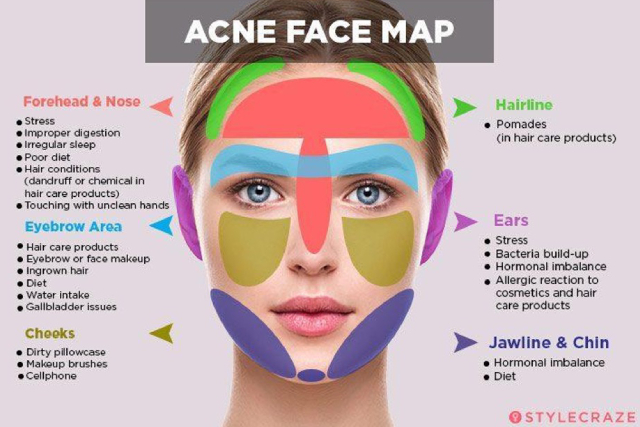
Acne, a common skin condition characterized by blemishes, pimples, and inflammation, can be a source of frustration and self-consciousness. While genetics and hormonal fluctuations play a significant role in its development, many individuals wonder if makeup, a ubiquitous part of daily life, can contribute to or exacerbate acne. The answer, as with many aspects of skin health, is nuanced and depends on a multitude of factors.
Understanding Acne: A Primer
To understand how makeup might influence acne, it is essential to grasp the fundamental mechanisms behind its formation. Acne arises when hair follicles become clogged with a combination of sebum (oil), dead skin cells, and bacteria. This blockage triggers inflammation, resulting in the visible lesions associated with acne.
The Role of Makeup in Acne Formation
While makeup itself does not directly cause acne, certain ingredients and practices can contribute to its development or worsen existing breakouts.
1. Comedogenic Ingredients:
Comedogenic ingredients are substances that can clog pores, creating a breeding ground for acne-causing bacteria. These ingredients, often found in makeup products, can trap sebum and dead skin cells, leading to the formation of blackheads and whiteheads.
- Oils: While some oils are considered beneficial for skin, others, such as coconut oil, are highly comedogenic and should be avoided by those prone to acne.
- Waxes: Certain waxes, like beeswax and carnauba wax, can also contribute to pore blockage.
- Silicones: While silicones are often used for their smoothing and blurring effects, they can trap oil and debris, leading to breakouts.
- Heavy Foundations and Concealers: Products with thick formulas can clog pores, particularly if they are not removed thoroughly.
2. Poor Hygiene Practices:
Maintaining good hygiene is crucial for preventing acne, regardless of makeup use.
- Dirty Brushes and Sponges: Makeup tools harbor bacteria and dirt that can be transferred to the skin, exacerbating breakouts. Regular cleaning is essential.
- Sleeping with Makeup: Leaving makeup on overnight allows bacteria and dirt to accumulate in pores, increasing the likelihood of acne.
- Sharing Makeup: Sharing makeup tools or products with others can transfer bacteria and increase the risk of infection.
3. Irritants and Allergens:
Some makeup ingredients can irritate sensitive skin, leading to inflammation and breakouts.
- Fragrances: Synthetic fragrances are common allergens and can trigger acne in sensitive individuals.
- Colorants: Certain dyes and pigments can irritate the skin, contributing to acne.
- Harsh Scrubs: Exfoliating is important for removing dead skin cells, but harsh scrubs can damage the skin barrier, making it more susceptible to breakouts.
4. Over-Application:
Applying excessive amounts of makeup can clog pores, leading to breakouts.
- Heavy Coverage: While full-coverage foundation can be tempting for those with acne, it can trap oil and debris, worsening the condition.
- Multiple Layers: Applying multiple layers of makeup can increase the likelihood of clogging pores.
5. Individual Skin Sensitivity:
Skin sensitivity varies significantly from person to person. What works for one individual might trigger breakouts in another.
- Oil Production: Individuals with oily skin are more prone to acne, as their skin naturally produces more sebum.
- Hormonal Fluctuations: Hormonal changes, such as those experienced during puberty or menstruation, can increase sebum production and contribute to acne.
The Importance of Non-Comedogenic Makeup
For those concerned about acne, choosing non-comedogenic makeup is crucial. These products are formulated with ingredients that are less likely to clog pores and contribute to breakouts.
- Oil-Free and Water-Based Formulas: These formulas are generally lighter and less likely to clog pores.
- Look for "Non-Comedogenic" Labeling: Reputable brands clearly label their products as non-comedogenic.
Beyond Makeup: Comprehensive Acne Management
While choosing the right makeup can help prevent breakouts, it is essential to remember that acne is a multifaceted condition. A holistic approach that addresses all contributing factors is vital for effective management.
- Cleanse Regularly: Gentle cleansers remove dirt, oil, and makeup without stripping the skin’s natural oils.
- Exfoliate Gently: Regular exfoliation removes dead skin cells and prevents clogged pores.
- Moisturize: Even oily skin needs hydration. Choose a lightweight, oil-free moisturizer.
- Consider Topical Treatments: Over-the-counter acne treatments containing benzoyl peroxide or salicylic acid can help reduce breakouts.
- Seek Professional Advice: For persistent or severe acne, consult a dermatologist for personalized treatment options.
FAQs: Makeup and Acne
Q: Can makeup cause acne in everyone?
A: No, makeup does not cause acne in everyone. Individual skin sensitivity and the specific ingredients in makeup products play a role.
Q: Are all makeup products comedogenic?
A: No, not all makeup products are comedogenic. Many brands offer non-comedogenic options specifically formulated for acne-prone skin.
Q: How often should I clean my makeup brushes and sponges?
A: It is recommended to clean brushes and sponges at least once a week, or more frequently if used daily.
Q: Is it safe to use makeup if I have acne?
A: Yes, it is generally safe to use makeup if you have acne, but it’s important to choose non-comedogenic products and maintain good hygiene.
Q: What are some non-comedogenic makeup brands?
A: Many brands offer non-comedogenic products, including:
- CeraVe
- La Roche-Posay
- Paula’s Choice
- Clinique
- BareMinerals
- Smashbox
Tips for Makeup Use with Acne-Prone Skin
- Choose non-comedogenic products: Opt for makeup specifically designed for acne-prone skin.
- Clean brushes and sponges regularly: Regularly clean your makeup tools to prevent bacteria buildup.
- Remove makeup thoroughly before bed: Never sleep with makeup on.
- Apply makeup sparingly: Avoid over-applying products.
- Consider mineral makeup: Mineral makeup is often less comedogenic and can be gentler on sensitive skin.
- Patch test new products: Before applying a new product to your entire face, test it on a small area of skin to check for irritation.
- Listen to your skin: Pay attention to how your skin reacts to different products and adjust your routine accordingly.
Conclusion
The relationship between makeup and acne is complex and influenced by individual skin sensitivity, product ingredients, and hygiene practices. While makeup itself does not cause acne, certain ingredients and practices can contribute to its development or exacerbate existing breakouts. By understanding the potential impact of makeup on acne, choosing non-comedogenic products, maintaining good hygiene, and practicing mindful application, individuals can minimize the risk of breakouts and enjoy a healthy and radiant complexion. Remember, a comprehensive approach to acne management that addresses all contributing factors is essential for achieving clear and healthy skin.

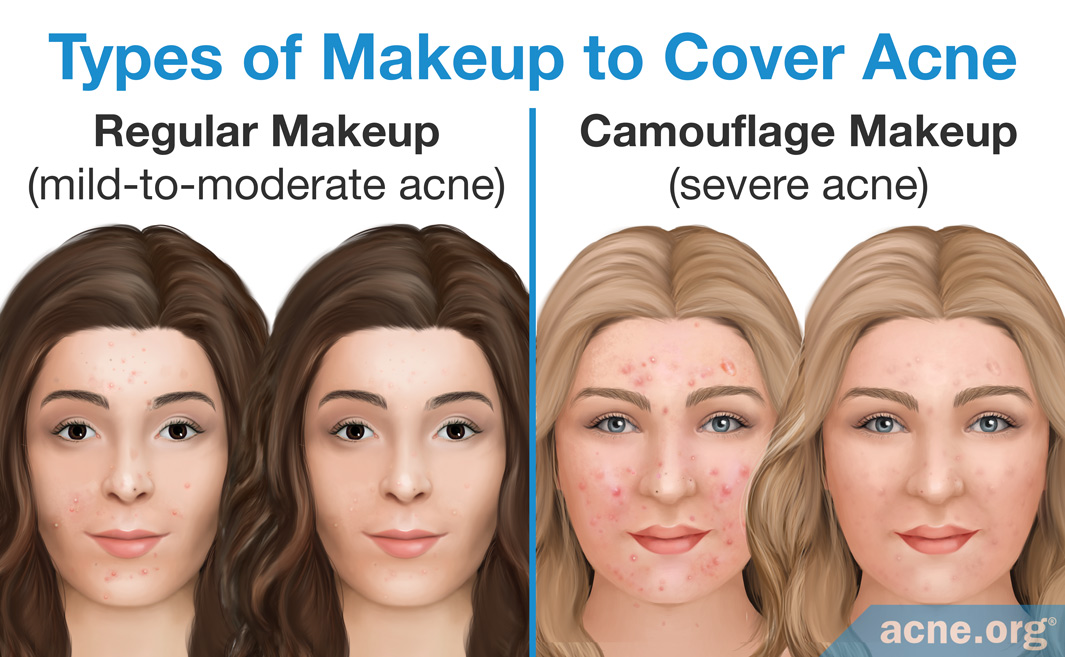
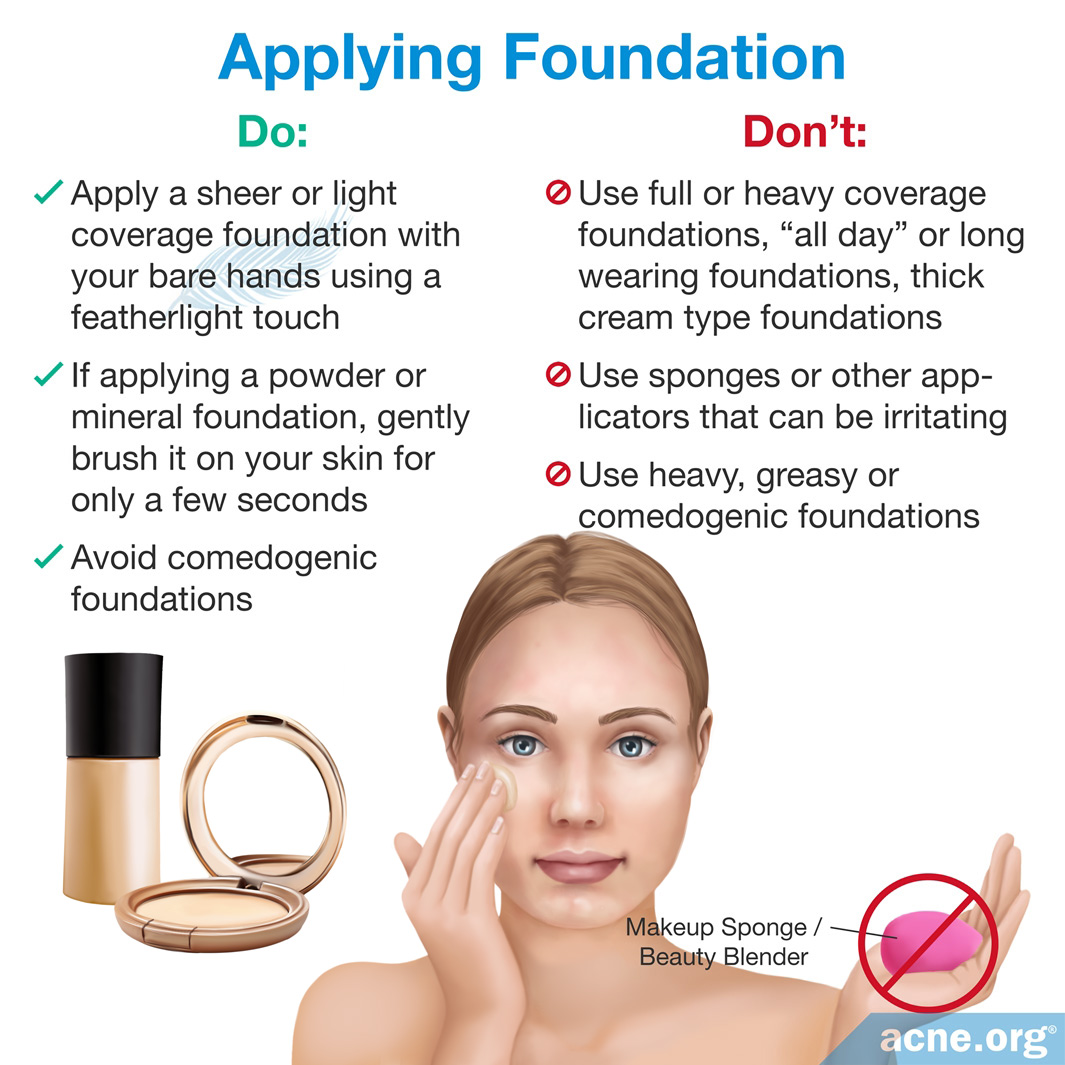
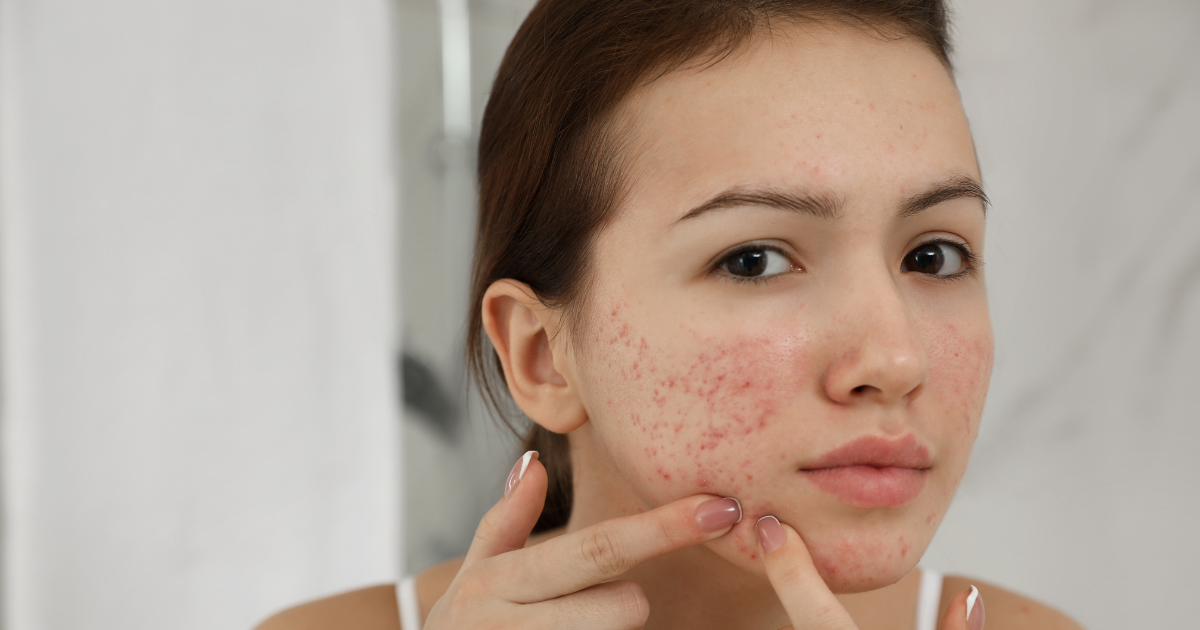



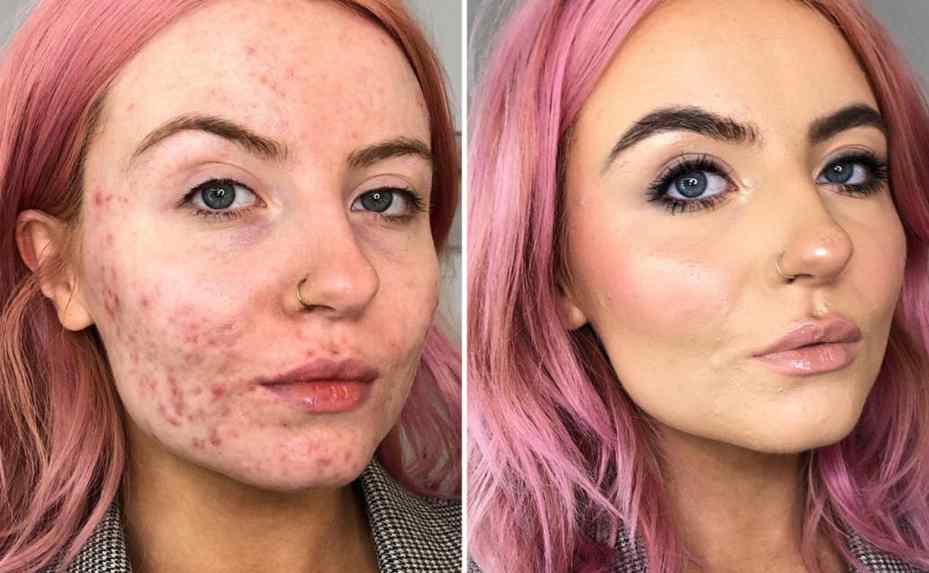
Closure
Thus, we hope this article has provided valuable insights into The Complex Relationship Between Makeup and Acne: A Comprehensive Guide. We hope you find this article informative and beneficial. See you in our next article!